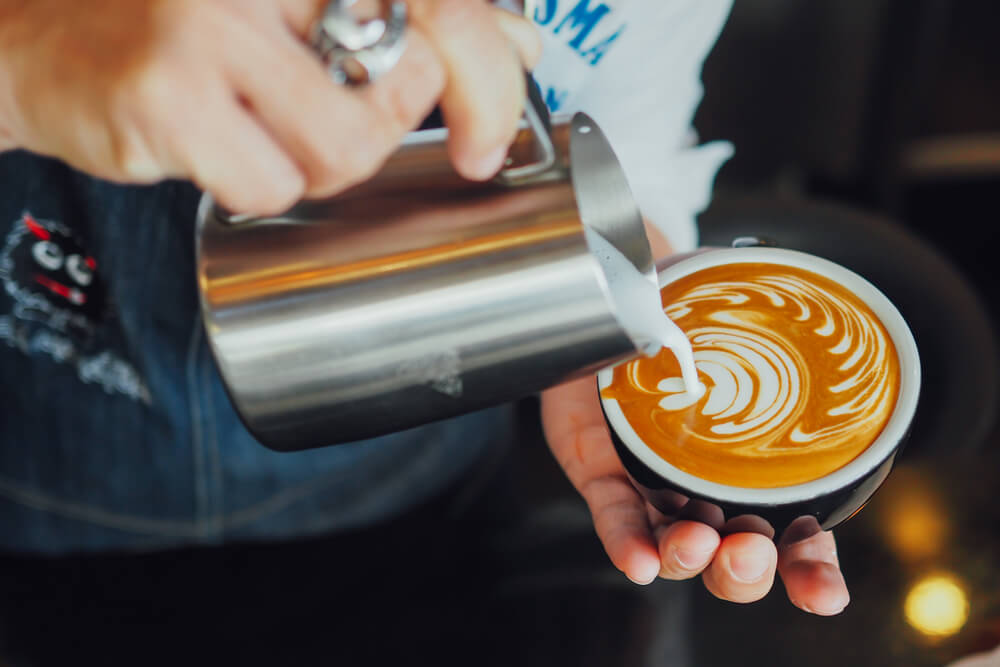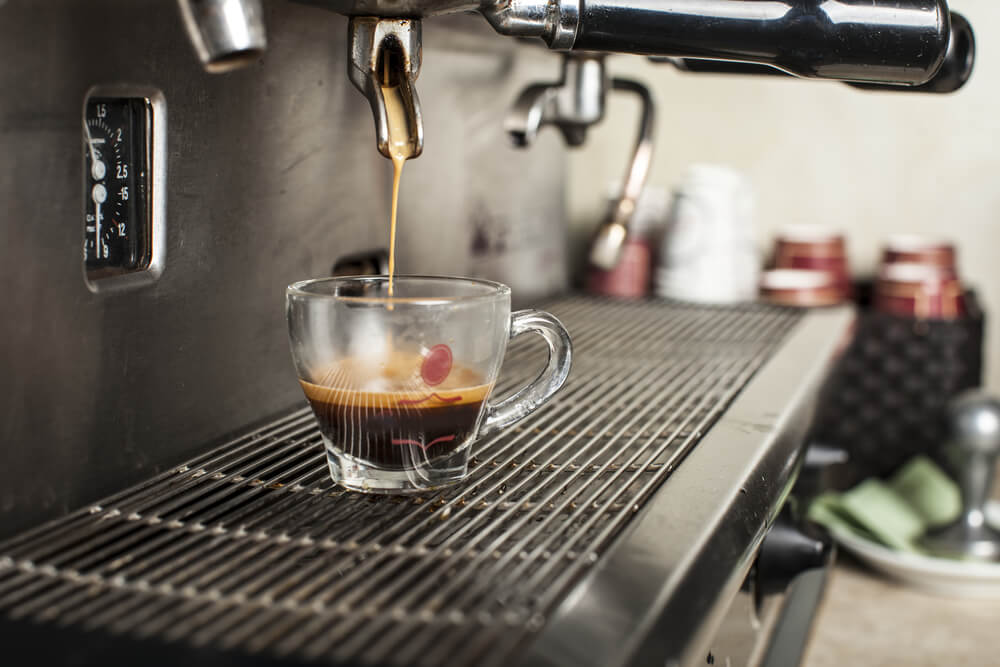Answer these simple questions and we will find you the BEST prices
Which type of solar quotes do you need?
It only takes 30 seconds
100% free with no obligation

Get up to 4 quotes from our selected suppliers by filling in only 1 form

Save money by comparing quotes and choosing the most competitive offer

Our service is 100% free and with no obligation
- Market-Inspector.co.uk
- Coffee Machines
- Espresso Coffee Machines
Espresso Coffee Machines
Why Espresso Coffee Machines Are Worth Your Investment
Ever since the first coffee machine was built in 1884 in Italy, espresso has grown to become a symbol of the highest quality coffee. There’s no better way to taste the simplest form of coffee and its rich aroma which makes espresso coffee machines a preferred buying choice.
Unlike automatic bean to cup machines, espresso coffee machines require some manual know-how, which adds to the experience. Whether at home or in an office environment, coffee suppliers offer various types suitable for every budget and needs. From small coffee makers suitable for home use to big commercial coffee machines that would satisfy high volume coffee cravings in a business setting.
In busy and modern offices, automatic coffee and capsule machines are growing in popularity. Pod and capsule coffee machines may be the right choice for busy individuals, without compromising on the quality. They require little to no effort to operate and deliver a variety of coffee drinks, decaffeinated and other choices.
Contemporary commercial espresso machines can be ideal for many different needs. They are most commonly used in cafés, coffee shops and canteens.
If you consider purchasing an espresso coffee machine, we can provide you with a service that is free of charge and without any obligation. You will receive up to 4 quotes from suppliers in your area to compare the best offers. Just fill in the form on the top of the page to request offers.
Price Range of Espresso Coffee Machines
The price for an espresso maker varies depending on the integrated features that the machine includes. The most simple home espresso maker can cost around £100, but large commercial espresso maker with four group heads that can range from under £300 to over £13,000 for the most advanced models. Investing in the right commercial espresso machine ultimately depends on the number of people that will be served.
Single serve coffee machine prices vary depending on their features. Basic single use units can start at £79. However, the machine will have limited options such as manual volume control of the drinks and a removable water tank. Advanced capsule coffee machines with automatic volume control, programmable cup sizes, and integrated fresh milk tanks can cost up to £400.
Can You Rent or Lease an Espresso Machine?
It is not always possible to make the money available for an investment such as a professional espresso machine. Do not imagine that this is something rare. On the contrary, renting an espresso maker has become a massive trend for several businesses all over the world.
The price that you have to pay when you sign a coffee machine rental agreement obviously depends on variables such as the price and quality of the espresso maker. However, you should consider in your mind a price range between £15 and £40 per week.
A second alternative to avoid the initial sum is of course leasing an espresso coffee machine. Many companies offer this type of agreement for most of their models.
In this way you have the opportunity to buy full ownership after a predefined period of time. It is also the perfect way to have a good “crash-test” by first checking if the espresso maker does actually meet your needs before your commit to buying.

How to Choose the Best Espresso Coffee Machine?
Consider the coffee machine for your business as an investment. There are few factors to take into consideration in order to pick the most suitable type for your commercial needs. being able to accommodate high demands of coffee using a complex machine, or having a simple machine that is available at a more affordable price.
How Many Coffees per Day?
Once we get in the office, getting a nice and warm cup of coffee in the morning is a usual routine. As busy professionals, however, queueing for a hot beverage slows down business.
For busy professional needs with a large number of people will be served we recommend in purchasing a larger, high performance commercial espresso machine. Figuring out the number of drinks that will be produced per hour or day is key.
Ease of Use and Espresso Quality
Espresso coffee machines will provide very high quality of coffee but you need to consider a few technicalities. Do you need a commercial espresso coffee machine for your office, but you do not have the luxury to train every single one of your employees how to manage your new equipment?
Or alternatively, do you have a barista “champion” to prepare all your espresso beverages in your venture? These are crucial questions, because you have to know how user-friendly the machine that you intend to purchase should be.
If your office is smaller and simplicity of the process is key, capsule and pod are good types of office coffee machines that produce high quality coffee without the need for advanced coffee making knowledge.
Regular and High End Professional Espresso Coffee Machines
Depending on their size and quality, there are several distinctive features of espresso coffee machines.
The smallest units are called single boiler for dual usage. These espresso coffee machines have a single boiler and two or more internal thermostats. The first one is for controlling the temperature of the water. The second one is for providing high temperature steam, usually used for milk steaming. Brewing and steaming cannot be performed at the same time on these machines.
The next machine class starts with heat exchanger machines. These units are pretty much the same as single boiler units. However, there is one major difference; heat exchanger machines can perform brewing and steaming at the same time.
Last but not least, there is the professional class of dual boilers. They are equipped with two separate boilers. One for boiling water for the brewing process and one that heats water for the steaming process. These units can also perform brewing and steaming at the same time without loss of temperature or pressure.
The Four Different Types of Espresso Machines
Let’s move on to the keystone of coffee-making. There are mainly four different types of espresso coffee makers and they can be summarised as follows:
Pump-Driven Espresso Machines
Nowadays, most of the coffee shops and cafeterias use pump-driven espresso machines to make their espresso drinks. The secret behind their success lies in the fact that they do not require manual force to pressurise the hot water through your ground coffee. Instead, a motor does the difficult job for you.
Piston-Driven Espresso Machines
Even though it is regarded as the “ancestor” of the pump-driven machines, piston-driven espresso machines are still used by many companies. In contrast with the mentioned above type of espresso-making, here the barista has to pump a lever that it will give the force to the hot water. Through this, the roasted ground coffee meets the boiled water, and they together start brewing your espresso shot.
Steam-Driven Espresso Machines
If the piston-driven machines are the ancestors of the pump-driven, then the steam-driven espresso machines are coming directly from the stone age of espresso history. Today, very few romantics or those that find the new models unaffordable choose the steam pressure machines to make their espresso.
Air-Pump Driven Espresso Machines
This is the newest commercial arrival in the espresso industry. The air-pump-driven espresso machines use the compressed air to force the hot water to the ground roasted coffee. However, because of their small size, they are not frequently used in working environments with a high volume of coffee demand.
In terms of structure types, the espresso coffee machine may be manual, semi-automatic or fully automatic.
What Is a Group Head?
Group heads, known as the heart of the espresso machines are an essential part that needs to be carefully maintained. Essentially, it is the piece where the portafilter attaches to the machine.
Depending on size and quality there could be machines with more than one portafilter. Machines with several group heads are considered to be professional espresso coffee machines. They are ideal for high turnover cafés and restaurants.
How Many Group Heads Can Espresso Coffee Machines Have?
The smallest espresso coffee makers are working with only one portafilter. High capacity machines are likely to be equipped with 2, 3 or 4 group heads. This means that they can work simultaneously with several portafilters, each of them capable to produce two espresso shots at the same time.
Usually, the units in this class have freely programmable dosage of the output amount of coffee drinks. Additionally, machines with 2 or more brewing groups have individual start and stop buttons for each group.

Best Brands for Espresso Coffee Machines
Depending on the type and needed capacity, there are several top brands that offer suitable machinery for every budget. In comparison to coffee vending machines, espresso machines require maintenance and care, but this pays off with impeccable quality of the end-product.
Top 3 Brands:
 | ||
 | ||
 |
Looking to learn more? Fill in the contact form in order to receive personalised quotes from our qualified suppliers. You are eligible to receive up to four free quotes and the service is without further obligation. Our sales team is happy to help you make the right choice.
Fill in the form in just 1 minute
We strive to connect our customers with the right product and supplier. Would you like to be part of Market Inspector?

